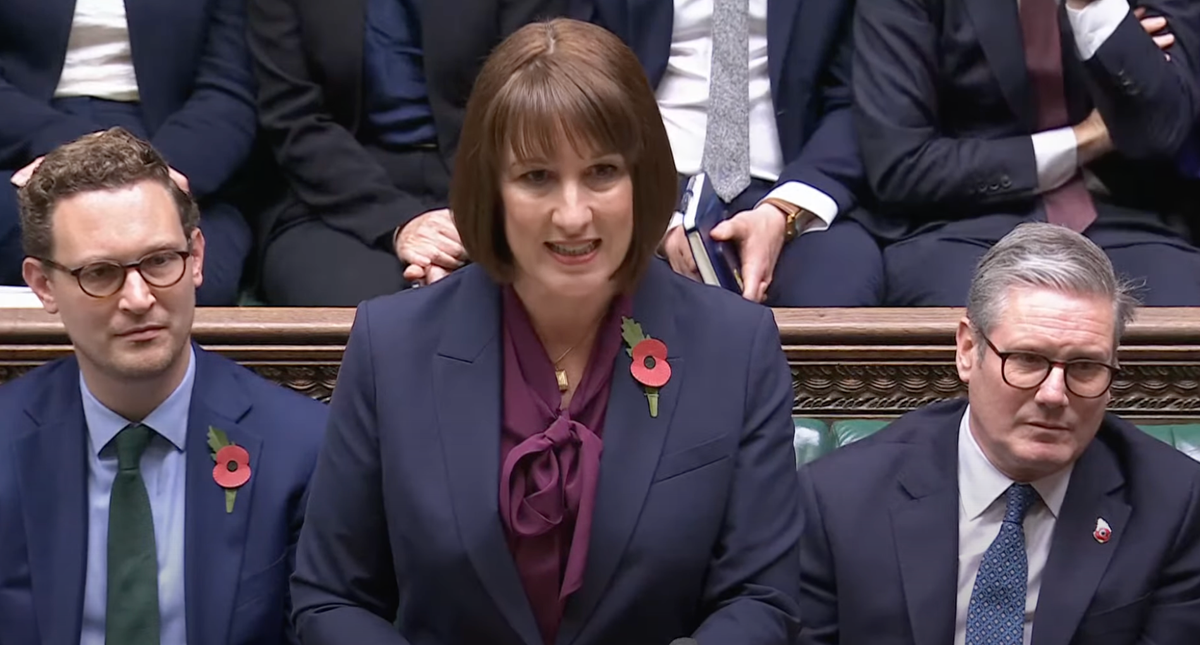What does Chancellor Rachel Reeves’ budget mean for the UK tech sector?

Chancellor Rachel Reeves has delivered her first budget, hiking up taxes and throwing the tech sector a bone with a promise to avoid cutting the UK’s “generous” tax relief on R&D.
The Labour Chancellor said Britain had “voted for change” as she increased taxes by a total of about £40 billion.
“Any chancellor standing here today would face this reality, and any responsible chancellor would take action,” she said.
Key tax changes include a 1.2% rise in employers’ National Insurance contributions, bringing the rate to 15% from April 2025. Additionally, the threshold for National Insurance contributions will be reduced from £9,100 to £5,000 annually.
Capital gains tax rates will also rise, with the lower rate increasing from 10% to 18% and the higher rate from 20% to 24%, impacting gains from investments and asset sales. These measures aim to boost government revenues through heightened contributions from employers and increased taxes on investment gains.
Tech reactions
Mark Boost, CEO of cloud provider Civo, warned that the budget favoured multinational tech giants, rather than British firms.
He said: “A promise not to cut R&D tax relief from the chancellor is encouraging, yet let’s not underestimate the challenges ahead for the tech sector. Many US tech firms’ R&D budgets currently eclipse that of the UK’s entire private sector.
“The UK tech scene already has to compete with Big Tech players who can use their size to offer anti-competitive free credit schemes, lock customers in, and monopolise the market. We have a wide depth of innovative firms here in the UK, and while maintaining R&D tax relief is a positive move, increasing employer national insurance may serve to hinder innovation from these players.
“Broader investment in the country must not come at the cost of tech companies that can put the UK on a level playing field with Silicon Valley.”
Jamie Moles, Senior Technical Manager from ExtraHop, criticised the Chancellor for making “no mention of cybersecurity funding”.
“Failing to prioritise cybersecurity weakens our defences and leaves us vulnerable against increasingly sophisticated cyberattacks,” he said. “Recent incidents like the Synnovis cyber attack affecting London hospitals has highlighted just how vulnerable essential services are, and how costly these weaknesses can be to public safety and trust.
“Without a dedicated commitment to cybersecurity, the UK risks lagging behind in securing its critical national infrastructure against emerging threats, potentially impacting public services that the Labour government desperately wants to stabilise.”
A strategy for the future
Reeves also fleshed out plans for a “Modern Industrial Strategy” to support investment in growth and provided more details of the National Wealth Fund, which aims to “catalyse” more than £70 billion of private investment, which will be spent partly on funding the development of gigafactories and green tech projects.
The aerospace sector will get £975 million over five years to fund R&D and the automotive industry will receive £2billion to drive the transition to greener tech.
Although a firm plan for steering the NHS from “analogue to digital” will be announced in Spring 2025, the Chancellor pledged to invest more than £2 billion in NHS technology to run essential services, drive productivity improvements, free up staff time, and improve cybersecurity.
Funding founders
The Chancellor pledged to continue support for the Enterprise Investment Scheme (EIS), which has provided £32 billion of investment to 56,000 companies since 1994. This program will now run until at least 2035.
David Mott, founder partner of Oxford Capital, said that founders and startups will be “pleased” that the government is continuing to back the scheme.
“EIS is a really important tool for stimulating the creation of new and innovative high-tech businesses,” he said. “It’s right that Rachel Reeves gives firm backing to EIS, as it means we’ll see more of the knowledge and tech-based businesses Britain does so well.”
“The Chancellor’s support for EIS means the UK has every chance of remaining the leading startup and venture capital market in Europe.”
However, research from the B2B tech consultancy ScaleWise indicates that there has been a significant drop in the early-stage UK startup rate of “graduation” from seed to series A funding, which has plunged from 12.5% in 2020 to just 4.5% today.
“While today’s Budget takes some important first steps toward supporting the UK’s startup ecosystem, significant work remains to address the sector’s fundamental challenges,” said Tom Glason, CEO and Co-Founder. “This dramatic decline isn’t just about funding availability; it points to a deeper issue around startup readiness for scale.
“Even brilliant innovations fail to secure follow-on funding without clear, executable plans for market entry and customer acquisition. While the Budget’s measures provide some breathing room, we need a more comprehensive approach that combines government support with practical go-to-market strategies – as early as possible.
Related
‘A bit boring – but boring can be good’: Why…
Have you heard of RELX? A lot of people haven’t. A cursory browse of Google Trends suggests there is less “search interest” for RELX than virtually any ot
Ireland’s Version 1 pledges £40m investment into British AI economy …
Irish technology consultancy Version 1 has pledged to invest £40m into the UK’s AI economy following a discussion with leaders of both countries. The i
UK tech funding roundup: This week’s deals from Quantexa to…
This week’s UK tech funding deals include AI data intelligence platform Quantexa, biomaterials developer Epoch Biodesign and more. UKTN tracked £200.3m worth
‘Just get on and do it’: Riverlane boss urges fast…
The UK has everything it needs to lead the world in quantum computing. First-class scientific talent, a solid funding pipeline, groundbreaking companies and eve













